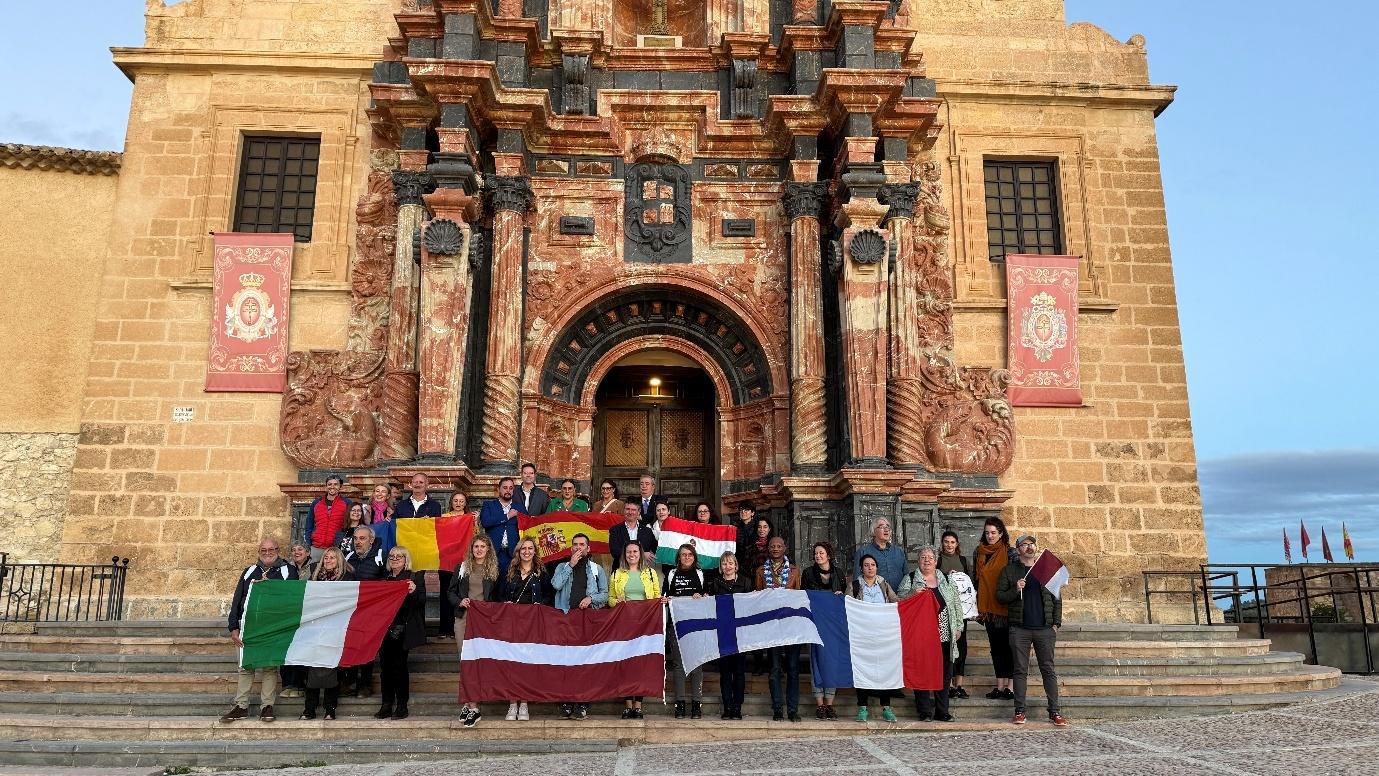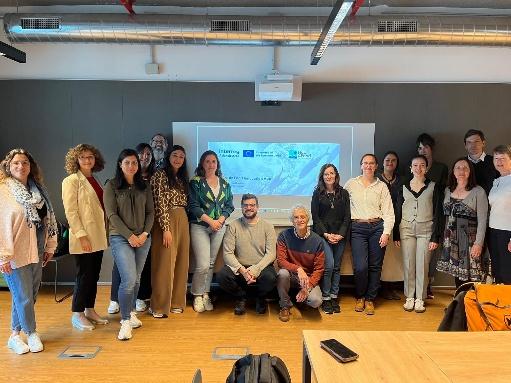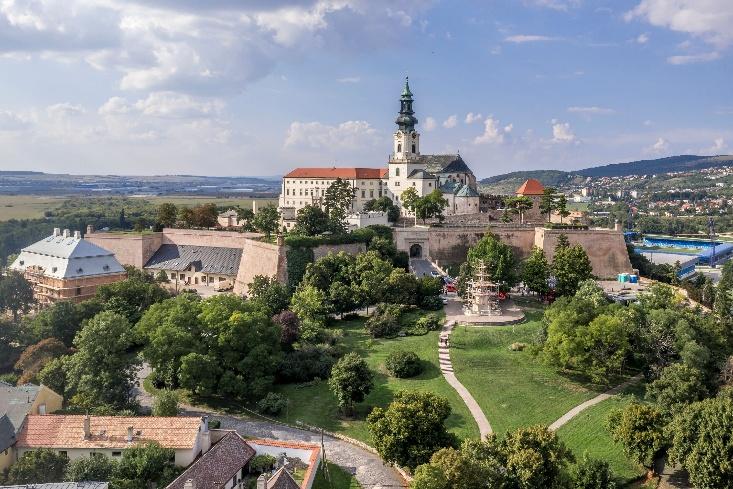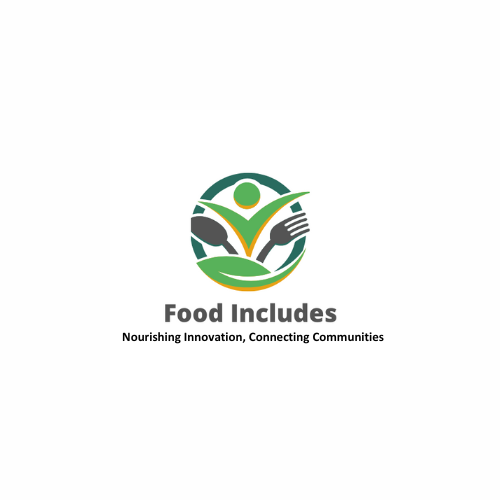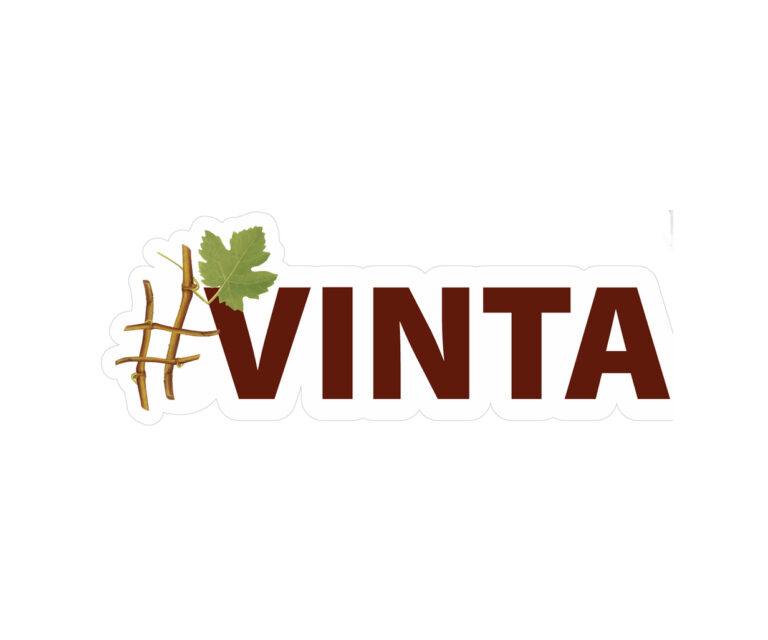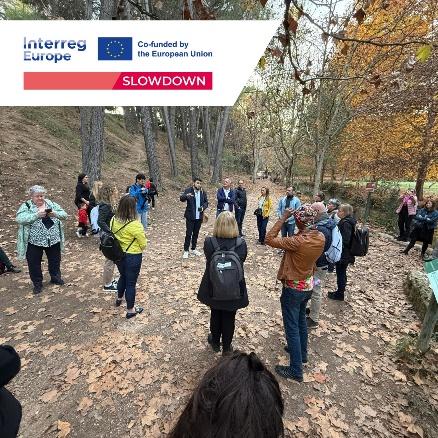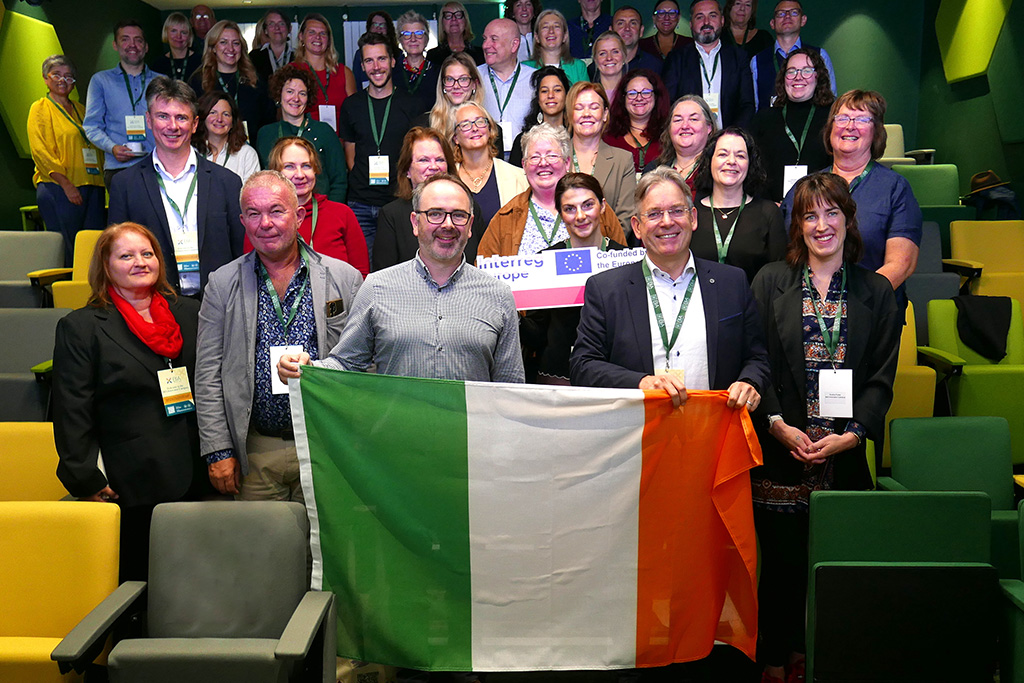
With the support of BIA’s cross-functional team and diverse expertise across the organisation, we currently coordinate 7 Erasmus+ and 2 Interreg projects, while continuing to build strategic partnerships for future funds and opportunities.
Through these initiatives, BIA Innovator Campus not only contributes to regional and national agri-food development but also plays a pivotal role in shaping sustainable food systems across Europe.
Collaborate with Us
At BIA Innovator Campus, we believe European partnerships drive innovation and growth. Whether you’re an organisation, public institution or private entity, we welcome collaboration opportunities that align with our mission to promote sustainability and innovation in the food industry. If you would like to get in touch, please email us at EUProjects@biainnovatorcampus.ie
Erasmus+

Current Erasmus+ Projects
Erasmus+ is the European Union’s flagship programme for education, training, youth and sport. It supports the development of knowledge, skills, and innovation across Europe and beyond, with a strong focus on cooperation, inclusion, sustainability, and digital transformation. At BIA Innovator Campus, we engage with Erasmus+ projects to foster innovation and upskilling within the agri-food sector. Through strategic partnerships, we co-develop practical training programmes, pilot new learning approaches, and connect Irish food entrepreneurs, SMEs, and educators with European peers.
Interreg

Interreg Programme
Interreg is the European Union’s flagship programme for territorial cooperation, supporting collaborative projects that address shared challenges across regions and borders. It promotes innovation, sustainability, and cohesion by funding partnerships that strengthen regional development and improve the lives of citizens. At BIA Innovator Campus, we engage with Interreg projects to enhance innovation and competitiveness within the agri-food sector, particularly in rural and coastal areas. Through transnational cooperation, we co-create market-driven solutions, support SMEs in adopting new technologies, and deliver our technical and entrepreneurial expertise to build stronger, more resilient food ecosystems across the EU regions.

Interreg Europe
This Interreg programme helps regional and local governments across Europe to deliver better policies by enabling public authorities and stakeholders to exchange experiences, best practices, build capacity and find innovative policy solutions in areas such as research, innovation, SME competitiveness, low-carbon economy, etc. BIA Innovator Campus engages with Interreg Europe to expand its regional innovation across Europe as well as replicating good practices and strengthening regional connections with European local authorities.

Interreg Atlantic Area
Interreg Atlantic Area supports transnational cooperation across the Atlantic regions of France, Ireland, Portugal and Spain. It aims to strengthen regional cohesion by funding innovative project addressing shared challenges in those areas, such as innovation, resource efficiency, climate adaptation, biodiversity, etc.BIA Innovator Campus participates in this programme with the objective to foster innovation and sustainable transformation within the agri-food sector. North and West Ireland’s strategic position places BIA with a unique opportunity to seek transformation among its strong network of rural SMEs and food stakeholders.
Past Projects
-
SUSTAIN
Project Type: PastThe SUSTAIN (Stimulating Healthy Food Service Innovation) project equips food service SMEs with the knowledge and skills needed to innovate and offer healthy, affordable products, enhancing their competitiveness and supporting a healthier society
-
NATURE
Project Type: PastThe NATURE project develops new training materials and resources for adult educators and professionals focused on inclusion, with a special emphasis on emerging urban agricultural trades. Its goal is to equip vulnerable adults with skills and knowledge in urban agriculture, enhancing their resilience.
-
EU Yeti
Project Type: PastBIA Innovator Campus participated in the EU Youth Eco Tourism Initiative (YETI), an Erasmus+ project aimed at empowering young people to promote sustainable and civic-minded tourism across Europe, especially after the COVID crisis. Over 30 months, YETI developed the skills of youth and their trainers in tourism (including food tourism), environmental stewardship, creative industries, and cultural heritage, while also supporting entrepreneurship.
-
Ethical Food Entrepreneurship (EFE)
Project Type: PastThe EFE project supports a new generation of food entrepreneurs in launching, expanding, and adapting ethical food businesses, with a focus on the triple-bottom-line: Planet, People, and Profit. The key objectives are: Empower ethical food entrepreneurship, Accelerate sustainable progress in the food sector.
-
EcoSME
Project Type: PastThe ECOSME project aims to strengthen the sustainability skills of SMEs in the hospitality sector. It addresses the unique challenges faced by these businesses in the post-COVID era by offering adaptable training resources.
Its main objectives are:
Raise awareness of sustainable business management,
Develop green skills among hospitality professionals,
Promote sustainable entrepreneurship within the F&B sector. -
Cook It Forward
Project Type: PastThis project bridges traditional European culinary heritage with modern educational approaches, targeting teacher and students in the cooking and hospitality fields.
The main objectives are:
Rejuvenate traditional European culinary practices,
Encourage innovation by adapting and modernising classic cooking techniques and dishes,
Connect culinary history with current needs.
Resources
BIA EU Newsletter
The EU Projects Newsletter is your go-to source for the latest updates on BIA’s Erasmus+, Interreg Europe, and Interreg Atlantic projects. Published every two months, it provides:
- Project Updates: A snapshot of recent progress, key milestones, and achievements for each project.
- Get Involved: Information on how to participate in surveys, workshops, or other project activities.
- Upcoming Events: Details on relevant conferences, webinars, and training sessions, including how to register.
Read our past newsletters:
March: BIA EU Newsletter March 2025
May: BIA EU Newsletter May 2025
July: BIA EU Newsletter July 2025
Subscribe below to stay informed on all our EU project activities!
EU Podcasts
Explore the stories behind our EU-funded projects with the EU Project Podcasts, recorded in BIA’s in-house podcast studio. Each episode features insightful conversations with project partners, participants, and experts involved in our Erasmus+, Interreg Europe, and Interreg Atlantic initiatives.
These podcasts dive into project goals, impact, lessons learned, and real-world experiences. Whether you’re looking for inspiration, information, or deeper engagement, these episodes bring our projects to life.
